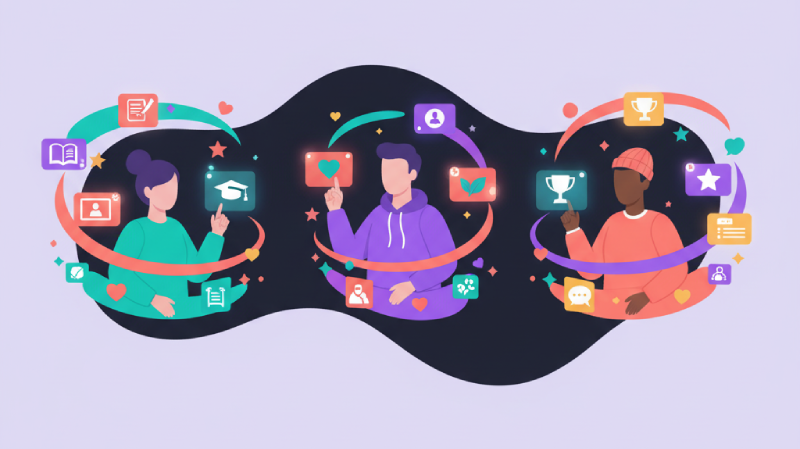HR Trends 2025: Navigating the Future of Work

A Global Employee Recognition and Wellness Platform
HR has come a long way. From managing policies and processes to becoming architects of employee experience, HR leaders now play a central role in shaping the future of work.
HR is evolving faster than ever. We have seen some major changes especially since 2020 and 2025 is set to bring even bigger changes. Technology, workplace culture, and employee expectations are shifting, and HR professionals must keep up. In this blog, we’ll dive into the biggest HR trends shaping the future of work—and take a quick look at how we got here.
A Look Back: HR Trends Since 2020
The last five years have been a whirlwind for HR. Here’s a quick recap of the major shifts:
2020: The global pandemic forced a rapid shift to remote work, with 88% of organizations worldwide mandating or encouraging employees to work from home (Gartner, 2020).
2021: Mental health and well-being took center stage, with 78% of employees saying workplace stress negatively affected their mental health (APA, 2021).
2022: Diversity, Equity, and Inclusion (DEI) became a core business strategy, with 67% of job seekers considering workplace diversity a key factor in job offers (Glassdoor, 2022).
2023: AI-powered hiring and HR automation became mainstream, with 55% of companies using AI in recruitment (LinkedIn, 2023).
2024: Companies doubled down on flexibility, skills-based hiring, and employee experience, setting the stage for 2025.
Now, let’s explore the biggest HR trends shaping the workplace in 2025.
Top HR Trends for 2025
1. AI Takes Over Routine HR Tasks
AI is no longer just a buzzword—it’s now embedded in every stage of the employee lifecycle.
Hiring: AI tools can now analyze candidates beyond resumes, predicting cultural fit and future performance. By 2025, 70% of HR leaders expect AI to significantly impact talent acquisition (PwC, 2024).
Performance management: AI provides real-time feedback, helping employees grow faster.
Employee engagement: AI-powered analytics can detect dissatisfaction before it leads to turnover, helping HR act proactively.
Companies using AI effectively are seeing faster hiring, reduced bias, and smarter workforce planning (McKinsey, 2024).
2. Skills Matter More Than Degrees
Companies are focusing less on degrees and more on what people can actually do.
Skills-based hiring opens doors for non-traditional candidates, making the job market more inclusive. Companies using skills-based hiring have seen a 27% increase in employee retention (Harvard Business Review, 2024).
Internal talent marketplaces match employees with projects that fit their skills, increasing engagement and productivity.
Continuous upskilling is now a must, with businesses investing in learning platforms to keep employees ahead of rapid industry changes.
3. Employee Experience Becomes More Personalized
One-size-fits-all policies are fading. Employees want workplaces that adapt to their needs.
Customizable benefits: From mental health resources to flexible work schedules, employees are demanding benefits that fit their lives. 80% of employees say personalized benefits improve job satisfaction (Gallup, 2024).
Workplace redesign: Companies are rethinking both digital and physical workspaces to encourage collaboration and creativity.
Holistic well-being: Beyond health insurance, employers are supporting financial wellness, social connections, and work-life balance.
4. The AIRe Framework Revolutionizes Employee Recognition
In 2025, employee recognition has moved from a "nice-to-have" to a strategic driver of engagement and retention. With organizations investing $46 billion a year in recognition programs, the AIRe Framework has become the gold standard.
AIRe breaks recognition into four powerful pillars:
Appreciation (valuing employee contributions)
Incentivization (making recognition aspirational)
Reinforcement (encouraging desired behaviors)
eMotional Connect (building emotional resonance)
The real game-changer? Measurability. Nearly 70% of companies say their recognition efforts fall short because they can’t track impact (Vantage Circle, 2025). The AIRe Assessment solves this with a simple, 15-minute check-up that scores program effectiveness and shows exactly where to improve.
Companies embracing AIRe are seeing real results—higher engagement, better retention, and stronger performance across the board.
5. Leadership Training Gets an Upgrade
With workplaces evolving, leaders need new skills.
Emotional intelligence and change management are now top priorities in leadership training.
Mentorship programs are expanding, with digital tools making it easier to connect with experienced professionals.
Succession planning is becoming more transparent, ensuring a smooth leadership transition when key players leave.
6. Data-Driven HR Decisions
HR is no longer just about gut feelings—it’s all about data.
Real-time HR dashboards give insights into workforce trends, helping leaders make smart decisions faster.
Predictive analytics can identify who’s likely to leave, so HR can step in before a resignation happens.
ROI tracking helps companies see which HR initiatives are actually worth the investment. Companies using people analytics are 3.1 times more likely to outperform their competitors (Deloitte, 2024).
7. More Flexible & Agile Work Structures
Rigid hierarchies are fading, replaced by more fluid, adaptable structures.
Agile teams form and dissolve as needed, making businesses more responsive.
Hybrid work has stabilized, balancing flexibility with meaningful in-person collaboration. 58% of employees prefer a hybrid work model (Microsoft Work Trend Index, 2024).
Cross-functional collaboration is breaking down silos, helping teams innovate faster.
8. More Investment in Frontline Workers
Frontline employees—retail staff, healthcare workers, and service professionals—are finally getting the tech and support they deserve.
Better access to technology helps frontline teams stay connected and efficient.
Specialized training programs delivered via mobile learning make career growth more accessible.
Clearer career paths allow frontline workers to grow into leadership roles. Organizations that invest in frontline worker development see 22% higher productivity (Forrester, 2024).
9. Trust & Transparency Are Non-Negotiable
Employees want openness, and companies that deliver will attract and retain the best talent.
Pay transparency is becoming standard, with more companies sharing salary bands and decision-making criteria. 67% of employees say pay transparency builds trust with their employer (Glassdoor, 2024).
Inclusive workplace policies are evolving to ensure diverse voices are heard and valued.
Better employee feedback mechanisms, supported by continuous pulse surveys and actionable insights, are making workplaces more responsive and fairer.
10. HR Goes Fully Digital
HR tech is getting a major upgrade, making work life smoother for everyone.
Self-service HR platforms let employees handle routine tasks (like leave requests and benefits selection) on their own.
HR automation is freeing up professionals to focus on strategic initiatives rather than paperwork.
Integrated systems are ensuring seamless workflows across departments.
11. Thoughtful Workforce Restructuring
Layoffs and restructuring are a reality, but companies are handling them with more care.
Compassionate outplacement services help departing employees land on their feet.
Internal mobility programs allow employees to shift roles instead of being let go.
Clearer change communication ensures employees understand the “why” behind big shifts.
Conclusion
HR in 2025 is all about balance—leveraging technology while keeping the human touch. The companies that succeed will be those that:
- Use AI to make smarter HR decisions
- Focus on skills rather than degrees
- Personalize employee experiences
- Implement structured recognition frameworks like AIRe
- Build flexible and inclusive workplaces
- Invest in both office-based and frontline employees
The last five years have shown us how resilient HR can be. Now, as we step into 2025, HR leaders have a huge opportunity to shape not just their companies, but the future of work itself.
What HR trend are you most excited about? Let’s talk in the comments!



















